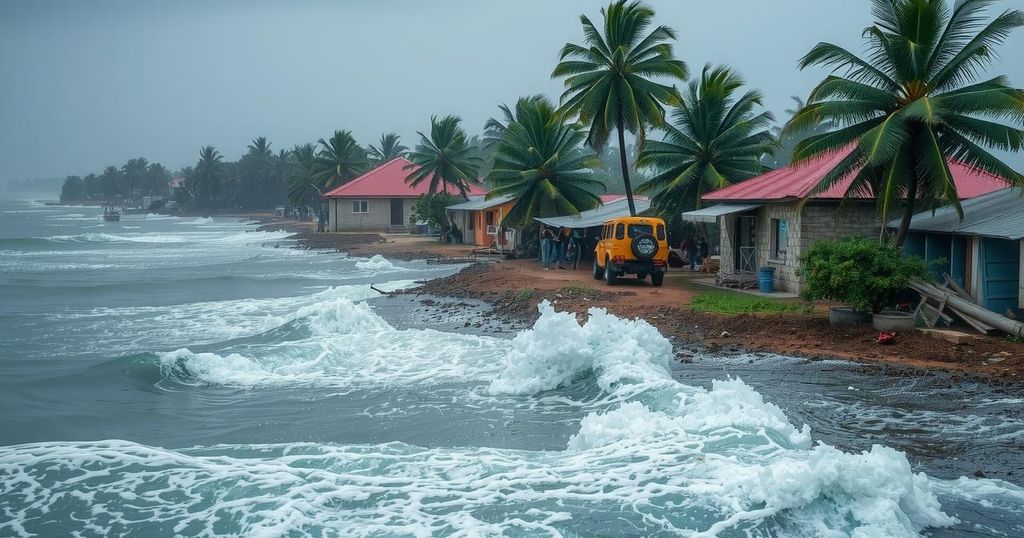Cyclone Chido Claims 120 Lives in Mozambique as Damage Worsens

Cyclone Chido’s death toll has increased to 120 in Mozambique, with nearly 900 injuries reported. The category 4 storm caused widespread destruction after making landfall on December 15, impacting homes, schools, and health centers. The cyclone initially hit Mayotte, leading to further casualties across several neighboring countries.
The death toll from Cyclone Chido in Mozambique has tragically risen to 120 individuals, as reported by the National Institute for Disaster Risk Management and Reduction (INGD). This devastating storm, classified as a category 4 tropical cyclone, made landfall on December 15, unleashing wind speeds of 260 kilometers per hour (160 mph) and producing 250 millimeters of rainfall within just 24 hours. The cyclone has also left nearly 900 individuals injured, with widespread destruction to homes, schools, and health centers throughout affected regions.
Initially hitting the French overseas territory of Mayotte on December 14, Cyclone Chido caused severe damage due to high winds exceeding 220 kilometers per hour (136 mph). While the official death toll in Mayotte stands at 35, various organizations have suggested that the actual numbers may be significantly higher. The storm’s impact was not confined to Mozambique, extending to neighboring countries such as Madagascar, Comoros, Zimbabwe, and Malawi, where it resulted in additional casualties and infrastructure damage. In Malawi, the Department of Disaster Management Affairs (DoDMA) reported 13 fatalities and 29 injuries attributable to the cyclone, alongside substantial destruction of homes and public infrastructure.
Cyclone Chido is part of a severe weather pattern that includes tropical storms affecting multiple countries in the southwestern Indian Ocean. The cyclone has demonstrated its capacity for destruction, with its high winds and heavy rainfall leading to considerable damage across several nations. The progression of Cyclone Chido highlights the vulnerability of coastal regions to severe weather conditions and the ongoing challenges faced by governmental and humanitarian organizations in responding effectively to natural disasters. The aftermath of such storms often results in long-term humanitarian crises, necessitating immediate relief efforts and future preparedness strategies.
In conclusion, Cyclone Chido has inflicted significant human and structural losses across Mozambique and beyond, with a rising death toll of 120 and nearly 900 injuries reported. The cyclone’s severity and widespread impact necessitate a comprehensive response to aid those affected and to address the critical infrastructure that has been compromised. The sequence of weather events emphasizes the urgency for effective disaster management strategies in the region.
Original Source: www.aa.com.tr







